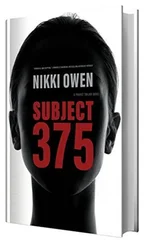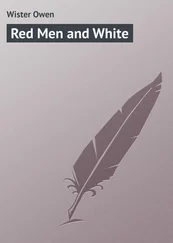Owen Wister - The Virginian
Здесь есть возможность читать онлайн «Owen Wister - The Virginian» весь текст электронной книги совершенно бесплатно (целиком полную версию без сокращений). В некоторых случаях можно слушать аудио, скачать через торрент в формате fb2 и присутствует краткое содержание. Жанр: Вестерн, на английском языке. Описание произведения, (предисловие) а так же отзывы посетителей доступны на портале библиотеки ЛибКат.
- Название:The Virginian
- Автор:
- Жанр:
- Год:неизвестен
- ISBN:нет данных
- Рейтинг книги:4 / 5. Голосов: 1
-
Избранное:Добавить в избранное
- Отзывы:
-
Ваша оценка:
- 80
- 1
- 2
- 3
- 4
- 5
The Virginian: краткое содержание, описание и аннотация
Предлагаем к чтению аннотацию, описание, краткое содержание или предисловие (зависит от того, что написал сам автор книги «The Virginian»). Если вы не нашли необходимую информацию о книге — напишите в комментариях, мы постараемся отыскать её.
The Virginian — читать онлайн бесплатно полную книгу (весь текст) целиком
Ниже представлен текст книги, разбитый по страницам. Система сохранения места последней прочитанной страницы, позволяет с удобством читать онлайн бесплатно книгу «The Virginian», без необходимости каждый раз заново искать на чём Вы остановились. Поставьте закладку, и сможете в любой момент перейти на страницу, на которой закончили чтение.
Интервал:
Закладка:
"You never—" broke in Molly. She had started back a little. "Well," she added hastily, "don't tell me if—"
"I shouldn't wonder if I got one of those Indians," he said quietly. "But I wasn't waitin' to see! But I came mighty near doing for a white man that day. He had been hurtin' a hawss."
"Hurting?" said Molly.
"Injurin.' I will not tell yu' about that. It would hurt yu' to hear such things. But hawsses — don't they depend on us? Ain't they somethin' like children? I did not lay up the man very bad. He was able to travel 'most right away. Why, you'd have wanted to kill him yourself!"
So the Virginian talked, nor knew what he was doing to the girl. Nor was she aware of what she was receiving from him as he unwittingly spoke himself out to her in these Browning meetings they had each day. But Mrs. Taylor grew pleased. The kindly dame would sometimes cross the road to see if she were needed, and steal away again after a peep at the window. There, inside, among the restored home treasures, sat the two: the rosy alert girl, sweet as she talked or read to him; and he, the grave, half-weak giant among his wraps, watching her.
Of her delayed home visit he never again spoke, either to her or to Mrs. Taylor; and Molly veered aside from any trend of talk she foresaw was leading toward that subject. But in those hours when no visitors came, and he was by himself in the quiet, he would lie often sombrely contemplating the girl's room, her little dainty knickknacks, her home photographs, all the delicate manifestations of what she came from and what she was. Strength was flowing back into him each day, and Judge Henry's latest messenger had brought him clothes and mail from Sunk Creek and many inquiries of kindness, and returned taking the news of the cow-puncher's improvement, and how soon he would be permitted the fresh air. Hence Molly found him waiting in a flannel shirt of highly becoming shade, and with a silk handkerchief knotted round his throat; and he told her it was good to feel respectable again.
She had come to read to him for the allotted time; and she threw around his shoulders the scarlet and black Navajo blanket, striped with its splendid zigzags of barbarity. Thus he half sat, half leaned, languid but at ease. In his lap lay one of the letters brought over by the messenger: and though she was midway in a book that engaged his full attention — DAVID COPPERFIELD — his silence and absent look this morning stopped her, and she accused him of not attending.
"No," he admitted; "I am thinking of something else."
She looked at him with that apprehension which he knew.
"It had to come," said he. "And to-day I see my thoughts straighter than I've been up to managing since — since my haid got clear. And now I must say these thoughts — if I can, if I can!" He stopped. His eyes were intent upon her; one hand was gripping the arm of his chair.
"You promised—" trembled Molly.
"I promised you should love me," he sternly interrupted. "Promised that to myself. I have broken that word."
She shut DAVID COPPERFIELD mechanically, and grew white.
"Your letter has come to me hyeh," he continued, gentle again.
"My—" She had forgotten it.
"The letter you wrote to tell me good-by. You wrote it a little while ago — not a month yet, but it's away and away long gone for me."
"I have never let you know—" began Molly.
"The doctor," he interrupted once more, but very gently now, "he gave awdehs I must be kept quiet. I reckon yu' thought tellin' me might—"
"Forgive me!" cried the girl. "Indeed I ought to have told you sooner! Indeed I had no excuse!"
"Why, should yu' tell me if yu' preferred not? You had written. And you speak" (he lifted the letter) "of never being able to repay kindness; but you have turned the tables. I can never repay you by anything! by anything! So I had figured I would just jog back to Sunk Creek and let you get away, if you did not want to say that kind of good-by. For I saw the boxes. Mrs. Taylor is too nice a woman to know the trick of lyin', and she could not deceive me. I have knowed yu' were going away for good ever since I saw those boxes. But now hyeh comes your letter, and it seems no way but I must speak. I have thought a deal, lyin' in this room. And — to-day — I can say what I have thought. I could not make you happy." He stopped, but she did not answer. His voice had grown softer than whispering, but yet was not a whisper. From its quiet syllables she turned away, blinded with sudden tears.
"Once, I thought love must surely be enough," he continued. "And I thought if I could make you love me, you could learn me to be less — less — more your kind. And I think I could give you a pretty good sort of love. But that don't help the little mean pesky things of day by day that make roughness or smoothness for folks tied together so awful close. Mrs. Taylor hyeh — she don't know anything better than Taylor does. She don't want anything he can't give her. Her friends will do for him and his for her. And when I dreamed of you in my home—" he closed his eyes and drew a long breath. At last he looked at her again. "This is no country for a lady. Will yu' forget and forgive the bothering I have done?"
"Oh!" cried Molly. "Oh!" And she put her hands to her eyes. She had risen and stood with her face covered.
"I surely had to tell you this all out, didn't I?" said the cow-puncher, faintly, in his chair.
"Oh!" said Molly again.
"I have put it clear how it is," he pursued. "I ought to have seen from the start I was not the sort to keep you happy."
"But," said Molly—"but I — you ought — please try to keep me happy!" And sinking by his chair, she hid her face on his knees.
Speechless, he bent down and folded her round, putting his hands on the hair that had been always his delight. Presently he whispered — "You have beat me; how can I fight this?"
She answered nothing. The Navajo's scarlet and black folds fell over both. Not with words, not even with meeting eyes, did the two plight their troth in this first new hour. So they remained long, the fair head nesting in the great arms, and the black head laid against it, while over the silent room presided the little Grandmother Stark in her frame, rosy, blue, and flaxen, not quite familiar, not quite smiling.
XXVIII. NO DREAM TO WAKE FROM
For a long while after she had left him, he lay still, stretched in his chair. His eyes were fixed steadily upon the open window and the sunshine outside. There he watched the movement of the leaves upon the green cottonwoods. What had she said to him when she went? She had said, "Now I know how unhappy I have been." These sweet words he repeated to himself over and over, fearing in some way that he might lose them. They almost slipped from him at times; but with a jump of his mind he caught them again and held them, — and then—"I'm not all strong yet," he murmured. "I must have been very sick." And, weak from his bullet wound and fever, he closed his eyes without knowing it. There were the cottonwoods again, waving, waving; and he felt the cool, pleasant air from the window. He saw the light draught stir the ashes in the great stone fireplace. "I have been asleep," he said. "But she was cert'nly here herself. Oh, yes. Surely. She always has to go away every day because the doctor says — why, she was readin'!" he broke off, aloud. "DAVID COPPERFIELD." There it was on the floor. "Aha! nailed you anyway!" he said. "But how scared I am of myself! — You're a fool. Of course it's so. No fever business could make yu' feel like this."
His eye dwelt awhile on the fireplace, next on the deer horns, and next it travelled toward the shelf where her books were; but it stopped before reaching them.
"Better say off the names before I look," said he. "I've had a heap o' misreading visions. And — and supposin'—if this was just my sickness fooling me some more — I'd want to die. I would die! Now we'll see. If COPPERFIELD is on the floor" (he looked stealthily to be sure that it was), "then she was readin' to me when everything happened, and then there should be a hole in the book row, top, left. Top, left," he repeated, and warily brought his glance to the place. "Proved!" he cried. "It's all so!"
Читать дальшеИнтервал:
Закладка:
Похожие книги на «The Virginian»
Представляем Вашему вниманию похожие книги на «The Virginian» списком для выбора. Мы отобрали схожую по названию и смыслу литературу в надежде предоставить читателям больше вариантов отыскать новые, интересные, ещё непрочитанные произведения.
Обсуждение, отзывы о книге «The Virginian» и просто собственные мнения читателей. Оставьте ваши комментарии, напишите, что Вы думаете о произведении, его смысле или главных героях. Укажите что конкретно понравилось, а что нет, и почему Вы так считаете.










